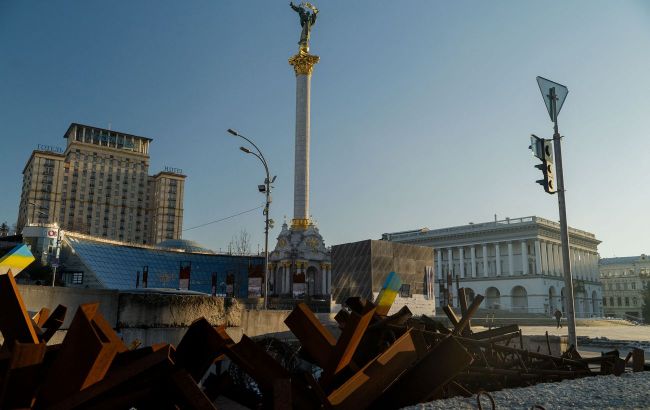Revolution of Dignity turning points: Crucial events that shifted Ukraine's path
 Photo: Independence Square during the Revolution of Dignity in Ukraine (Getty Images)
Photo: Independence Square during the Revolution of Dignity in Ukraine (Getty Images)
The key events of the Revolution of Dignity became defining moments that shaped Ukraine's future, its political course, and the society's ability to resist dictatorship. Anton Drobovych, head of the Center for Human Rights and War Memorialization at the Kyiv School of Economics and former head of the Ukrainian Institute of National Memory, spoke in an interview about which episodes became decisive and how the Maidan influenced the Kremlin's subsequent decisions.
'Maidan was a living nerve'
According to Drobovych, the Revolution of Dignity unfolded as an event that gradually changed the atmosphere in the country. He describes Maidan as a "living nerve," a space that has influenced not only the information landscape of Ukraine but also that of the world. It was the era of the first mass livestreams and rapid news, when events were broadcast in real time and had an instant impact.
The expert highlights several moments that effectively changed the course of events. The first was the beating of students on the night of November 30. It was then that it became clear the confrontation was escalating to a new level. Then came the clashes on Hrushevskoho Street and the opening of fire on protesters. Each of these episodes, he says, became a catalyst for deep changes and strengthened public resistance.
Escape of Yanukovych as the end of the failed dictatorship
Drobovych emphasises that it was logical for Yanukovych's regime not to hold on to power. The authorities failed to break the Maidan because people stayed on the barricades despite attempts by security forces to disperse them, the shootings, and the pressure. The sniper killings of the Heavenly Hundred only intensified the determination of the protesters.
"It became evident that dictatorship doesn't work against protest. The security forces who were supposed to disperse Maidan were pushed back, people did not retreat," he says.
In the expert's view, Maidan became a kind of test for everyone: from politicians and security structures to agents of influence and ordinary citizens. It was during this time that many people showed their true stance, both betrayers and heroes.
Did the revolution influence the Kremlin's actions
Speaking about the impact of Maidan on Russia's subsequent decisions, Drobovych notes that this will be known for certain only after the fall of the Putin regime and access to Russian archives. However, he assumes that the Revolution of Dignity may have been one of the factors that prompted the Kremlin to take aggressive actions.
According to him, Russia may have considered various scenarios, including pushing Yanukovych to disperse the protests or trying to keep him in power as long as possible to destabilise Ukraine. But what mattered was that Maidan was an event beyond the Kremlin's control.
Anton Drobovych also pointed out significant gaps in young people's knowledge about the events of the Revolution of Dignity. According to studies, some school students know almost nothing about Maidan, which complicates the shaping of historical memory amid an ongoing war.
On November 21, Ukraine commemorates the Day of Dignity and Freedom, marking the anniversary of the start of the Orange Revolution in 2004 and the Revolution of Dignity in 2013. On this day, people commemorate the mass protests against election fraud, the violent dispersal of students, the bloody events of February 2014, and Yanukovych's escape.

